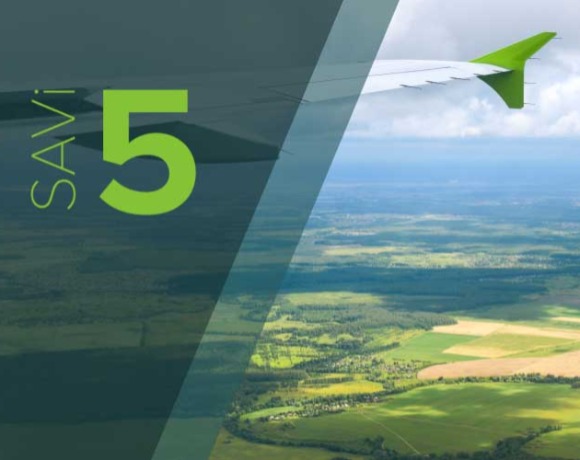Five noteworthy aviation sustainability developments in the past seven days curated by the Ishka SAVi team.
Here are the new developments to keep in mind:
1. EU recommends 2040 target at 90% emissions cut, up from 55% by 2030 – The European Commission this week recommended a 90% net greenhouse gas EU emissions reduction by 2040 compared to 1990 levels, in line with recent scientific advice and the EU’s commitments under the Paris Agreement. The recommendation will reinforce emissions management measures, reaffirm the need to fully implement Fit for 55 legislation (such as ReFuelEU Aviation), and compel the next Commission (after the June 2024 election) to put forward legislative proposals on a 90% target basis. The target will now be discussed with the European Parliament and the Member States. The main transportation-focused environmental NGO in Europe, Transport & Environment (T&E), broadly welcomed the recommendation making it “historic” and underlining that it gives “investment certainty” to transport stakeholders including airlines. However, it criticised the lack of specificity of ambition for aviation in the 2040 target recommendations.
2. After e-VTOLs, Avolon now ‘interacting’ with clean tech CTOL – In its latest sustainability report published on 8th February, major aircraft lessor Avolon details that in 2023 it conducted “on-site evaluations” of the top 15 clean technology OEMs (+5 seats), including battery-electric, hybrid-electric, and hydrogen. Avolon includes a sample of 13 OEMs in the report, of which five are working on fixed-wing products in the sub-regional and regional segments (Eviation, Heart Aerospace, Textron, Universal Hydrogen, and ZeroAvia) “We expect these evaluations to lead to closer collaborations in 2024,” the lessor notes in the report. The interest in conventional take-off and landing (CTOL) clean-tech is a shift from Avolon’s approach to clean-tech so far, which has been focused entirely on e-VTOLs. Through its Avolon-e platform, Avolon in 2021 placed an order for 500 of Vertical Aerospace’s VX4 e-VTOLs valued at $2 billion. It also makes Avolon the largest lessor to express a commercial interest in fixed-wing new propulsion technologies, which so far have attracted orders and commitments by 11 leasing and asset manager platforms, according to the SAVi New Propulsion tracker.
3. Aviation-inclusive Shanghai Taxonomy published – China’s first transition finance taxonomy has now been published, having debuted through a Spring Airlines loan last month. Ishka understands the document, available to download via the SAVi Resource Library (see: Shanghai Transition Finance Taxonomy (Trial) (in Chinese) ) contains aviation criteria on page 7 of the PDF version (Page 10 of the Word version). The Shanghai Transition Finance Taxonomy (Trial) (approximated translation of its original title: 上海市转型金融目录(试行)) was announced by the Shanghai Municipal Financial Regulatory Bureau at the end of December 2023 for introduction in January 2024, but was still unpublished as of last month.
4. EU includes SAF in IRA-rivalling NZIA as UK Labour rows back on green spending pledge – The EU Council and the European Parliament on 6th February reached a provisional deal on the regulation establishing a framework of measures for strengthening Europe’s net-zero technology products manufacturing ecosystem, better known as the ‘net-zero industry act’ (NZIA). The regulation aims at boosting the industrial deployment of net-zero technologies needed to achieve EU’s climate goals, using the strength of the single market to reinforce Europe’s leadership in industrial green technologies. The consensus document – which is likely to become law – includes “sustainable alternative fuels” including SAF in its ‘strategic net zero project’ scope. The inclusion of SAF has been welcomed by aviation trade associations in Europe, although they remain steadfast in calling on “policymakers to go further to ensure Europe develops a world-leading SAF industry.”
Meanwhile, in the UK, the Labour Party’s decision to scrap a £28 billion ($35.3 billion) green spending pledge could have a knock-on impact on government-driven aviation decarbonisation investment. The Labour Party, which according to pollsters and political analysts is expected to win the UK general election due in the next 12 months, will scale down green investments to prioritise ‘fiscal stability’. While the party had never provided a complete breakdown of the £28 billion spending plan, it had cited an objective to build a “thriving hydrogen industry” (both an alternative fuel for aviation as well as a feedstock for SAF). Labour leader Keir Starmer had also previously referred to the spending plan as an answer to the US’ Inflation Reduction Act (IRA), which includes tax breaks and other incentives to stimulate SAF production.
5. ICCT chips in on how aviation taxes can add to the COP28 Loss and Damages fund - The 2023 UN Climate Change Conference, also known as COP28 ended in Dubai last December with one key development for aviation: the launch of an international taxation taskforce by France, Kenya, Barbados, Spain, and other unnamed countries. Although details about the taskforce were (and still remain) scant, the range of options it was set to be considered include levies on international aviation, which France and the EU have previously publicly supported. Those taxes would contribute to the implementation of a Loss and Damage fund to support developing nations contending with the worst impacts of global warming. On 8th February, the International Council on Clean Transportation (ICCT) published a blog detailing how much revenue a tax on airplane tickets could raise for the fund. $164 billion could be raised in a year if economy-class tickets were taxed at $30 each and premium-class tickets at $120 each, which could support the approximately $400 billion per year the fund is estimated to need.



